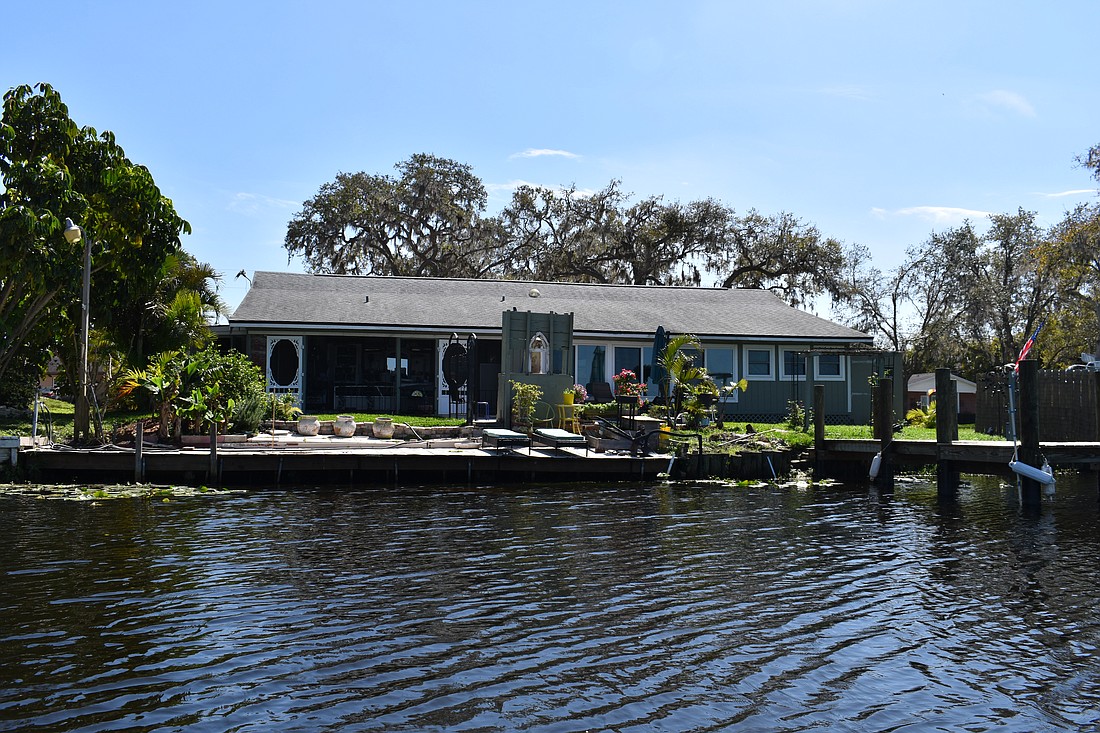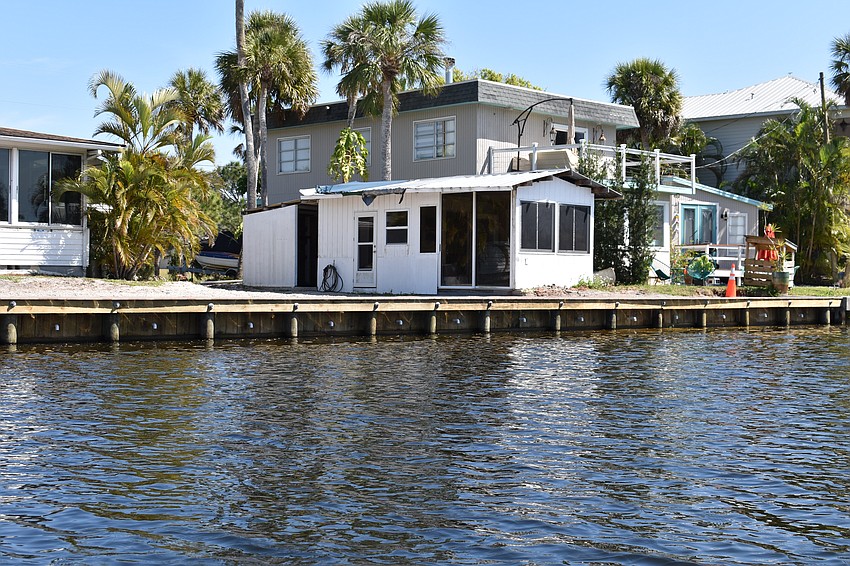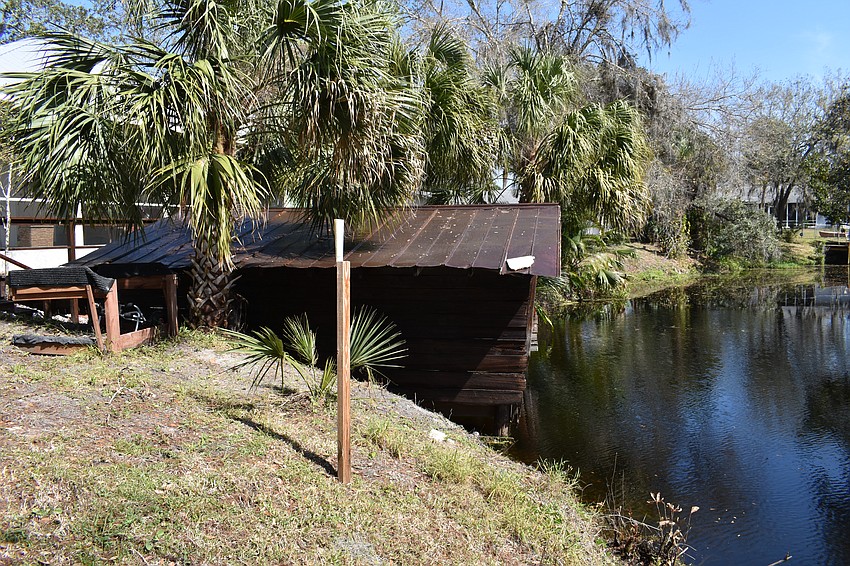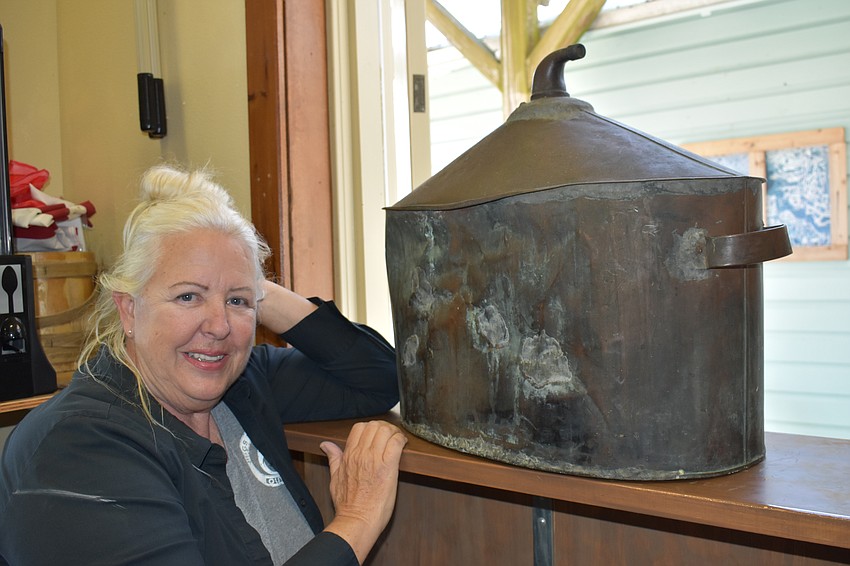- July 10, 2025
-
-
Loading

Loading

Driving along Linger Lodge Road, Denise Kleiner talked about all the beautiful, new subdivisions that make up that area of East County.
But what people don't know, she said, is the rich history hidden behind those subdivisions along the banks of the Braden River.
Kleiner, who owns and operates the concessions at Jiggs Landing, was talking about Marineland, a stretch of land originally owned by Lincoln Marine, who moved to the area in 1920 and over the decades sold pieces of his land for development.
A local history buff, Kleiner once lived in a home on the banks of the Braden River that was built by Lincoln Marine. Over the years, Kleiner learned as much as she could about the area's history from longtime residents and as a member of the Old Braden River Historical Society.
In conjunction with the 44th annual Manatee Heritage Days in March, Jiggs Landing is offering a special boat tour featuring a tour of Marineland, the river and the Evers Reservoir.
Lincoln Marine, who moved to the area in 1920, created the first subdivision in Manatee County outside Bradenton's city limits. The tour will include an arm of the Braden River where he built his home and rebuilt an abandoned cabin next to his home.

The tour will be offered at anytime during park hours with a minimum of four people in the boat. The cost is $20.
Manatee Heritage Days is organized by the Manatee County Clerk of the Circuit Court’s Department of Historical Resources, under the auspices of Angelina “Angel” Colonneso.
Kleiner said she loves educating people about the Braden River's history.
Here are five important take-aways Kleiner wants people to learn during a Heritage Days tour.
She likes to follow the original course of the river and she will travel around the lake to describe what the land and banks used to look like before 1979.

When looking across the water from Jiggs Landing, a huge hill marks the horizon along with a host of homes at the base of the hill that make up The Heights. On the other side of the hill is Honore Avenue.
"A lot of people think that hill was a landfill," Kleiner said. "It is important for them to know that isn't true."
She explained that the hill is made up of the ground that was dug out in 1979 to make the reservoir. She said that area once was flatter and covered with trees.
Now a single string of long needle pines line the area between the shore of Ward Lake and the homes. "Those were planted by Eagle Scouts in 1980," Kleiner said. "It shows what a lasting impact they can make."
She said a young couple had moved to the area in the late 1800s and although not much is known about the couple, their contributions helped shape the area.
She said they built an oven and began to produce bricks that were used in many of the houses eventually built in the area. Kleiner, who still owns 8 acres along the Braden River that is undeveloped, said she found remnants of that oven, or "What was left of it."
She said, at the time, para grass covered much of the surface of the Braden River and made it hard to navigate. The couple figured out how to make rope from that para grass. They also collected Spanish moss, which they traded at a market for cork.
After a particularly bad storm one year, they used the cork and the rope that they had made to pull the para grass suffocating the river back toward the banks in each direction. The effort worked and cleared up the river to where the fish population came back.
The effort was documented in the woman's diary that still is owned by Pete Marine, who allowed Kleiner to read it.

He came to the Braden River in 1920 after living at Emerson Point on the Manatee River.
"He had built his home on an Indian mound, and know one knew back then it wasn't allowed (it was protected by federal law). So he and his wife had to move, and they came here. It was their little piece of heaven."
Kleiner said the Linger Lodge Road didn't exist, and through his constant travels along that route, he basically built the road.
She said his home was built out of pecky cypress, pine and oak and it still stands.
The Jiggs Landing Fish Camp was founded in 1944, about the same time as Linger Lodge. Al "Jiggs" Metcalf founded the camp after buying 7 acres of land. He built several cabins on the property, the last in 1964.
Manatee County bought the land in 2005 and Kleiner and Bill Halstead became involved as members of the Old Braden River Historical Society. Although the cabins could not be saved, a replica cabin was built on the site.
Kleiner will throw in lots of tidbits during the tour. At the Jiggs Landing concession during Heritage Days, she sells swamp cabbage, made out of the heart of palm, and sour orange pie with Macadamia nut crust.
Although Macadamia nuts weren't native to the area, the pie was a regional specialty as those who made it would trade their goods for the Macadamia nuts that were brought to the area from Hawaii. Sour oranges were produced in the area, but they were brought to Florida by the Spaniards, who ate the oranges to prevent scurvy.
"People don't realize that sour orange pie in Florida came before key lime pie," Kleiner said.